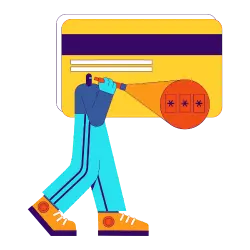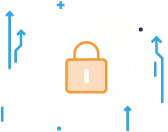Because it can take weeks, sometimes even months, for a final decision to be rendered in the event of a chargeback, issuing backs often supply cardholders with provisional credit for the disputed amount while awaiting a final decision. Since the inception of credit cards, financial institutions have attempted to make credit card payments as seamless as possible for customers and merchants alike—and provisional credit is one such attempt. While cardholders must pay back this credit if the final decision sides with the merchant, it ensures there are no gaps in consumer funding during a chargeback dispute.
In this guide, we explore provisional credit, how it works, its advantages and disadvantages, the impacts it has on your business, and provisional credit reversals.
What Is Provisional Credit?

Provisional credit is a credit supplied by the issuing bank to the customer before a full refund via chargeback is processed. This ensures customers have access to the funds while the issuing bank processes the chargeback. However, in the event the issuer sides with the merchant at the end of the chargeback process, the cardholder must pay back the provisional credit.
When a customer disputes a charge on their credit card, the ensuing chargeback process can be quite lengthy. Cardholders usually wait weeks, sometimes even months, to receive a refund. To alleviate this burden for consumers, many issuing banks provide customers with provisional credit in the meantime to cover the disputed funds.
How Does a Provisional Credit Work?
The provisional credit process is simple. When a customer files a chargeback, they are essentially requesting a refund due to fraud, misrepresentation, or another applicable reason. Because it takes time to decide whether the claim is legitimate, the issuing bank may credit the customer’s account with the disputed amount.
Fortunately, merchants don’t need to provide funds to cover provisional credits. It’s up to issuing banks to decide if they want to credit the customer. Once the bank completes its investigation, it either allows the customer to keep their provisional credit or, if the merchant successfully disputes the chargeback, it withdraws the money from the customer’s account and provides it to the merchant.
Why Does a Bank Issue a Provisional Credit?
In short, banks issue provisional credit to keep their customers happy. The chargeback process can be long and tedious, during which account holders would be left without money for fraudulent charges. To ensure customers confidently use their credit cards to make purchases, banks provide credits to prevent funding gaps. Clearly, this isn’t a perfect solution. If a customer spends a provisional credit before a final chargeback decision, the issuing bank needs to claw it back from the cardholder to cover the reversal.
Provisional credit also benefits merchants, as it places more trust in the credit card payment ecosystem. If a customer thinks a fraudulent charge on their credit card will result in frozen funds, they may be less likely to pay using their credit card.
Additionally, there are also some instances in which banks provide provisional credits in place of traditional transactions. For example, if a transaction is initiated but not yet complete, provisional credit may remain on the account until the transaction finalizes.
Provisional Credit Advantages
- Happy Customers: If customers don’t have to wait months to receive chargeback funds, they’re more likely to be happy with merchants, issuing banks, and credit card networks.
- Easier Dispute Process: By allowing customers to access funds during a dispute, there’s no rush to come to a final chargeback or chargeback dispute decision.
- No Funding Gaps: It would be unfair for victims of fraud to lose access to hard-earned money. Provisional credits ensure there are no unfair funding gaps resulting in financial hardship for consumers
Provisional Credit Disadvantages
- Chargeback Likelihood: While merchants don’t fund provisional credits, it may turn into a chargeback if the issuing bank deems the merchant liable.
- Problems for Card Issuers: Since card issuers are responsible for providing the credit to the customer, they must then chase the funds if the merchant wins the chargeback.
- Assumption of a Successful Chargeback: A customer may assume they’ve won a chargeback if an issuing bank credits their account and they don’t fully understand the process. This can lead to unhappy customers if the final decision is in the merchant’s favor.
How Do Provisional Credits Affect Your Business?
Provisional credits do not impact your business directly, as business owners aren’t responsible for funding them. In fact, they can actually help merchants because they give customers more consumer confidence. And evidence suggests consumers spend more money when using a credit card than when using cash.[1]MIT. “How credit cards activate the reward center of our brains and drive spending“. Accessed November 22, 2022.
Can You Reverse a Provisional Credit?
Yes, provisional credits are reversible. As a business owner, you are entitled to dispute chargebacks lodged against your business. If you prove the illegitimacy of a chargeback, the issuing bank reverses the credit and allows you to retain the money from the transaction.
What Is a Provisional Credit Reversal?
A provisional credit reversal is exactly what it sounds like: a retraction of the issued credit. Essentially, when a reversal takes place, the customer’s chargeback wasn’t accepted. After this decision, the issuing bank must take back the credit from the customer and allow the merchant to keep the money.
Do representments guarantee a provisional credit reversal?
No. There is never a guarantee your business will be able to reverse a provisional credit. If a customer files a chargeback, you must prove it’s illegitimate to reverse it.
Representment refers to the process afforded to merchants for disputing chargebacks. It does not provide assurances regarding outcomes for business owners. However, as merchants are guaranteed representment for all chargebacks, your business always has the chance to fight any payment disputes raised by customers.
How to Prevent a Provisional Credit from Becoming a Chargeback
Provisional credit doesn’t hurt your business, but a high chargeback rate can negatively impact your business. If you want to prevent provisional credits from damaging your business, you must stop them from becoming chargebacks.
While chargebacks are almost guaranteed for businesses accepting credit card payments, there are steps you can take to reduce their occurrence. Additionally, evidence suggests merchants win more than 30% of chargeback disputes.[2]JUSTT. “Credit Card Chargebacks – A Merchant’s Guide“. Accessed November 22, 2022. However, a business’s success rate may vary depending on its dispute approach. And the best way to win a chargeback dispute is to stop a chargeback from ever occurring. Below explores some effective ways to prevent chargebacks.

Respond Within Deadlines
If you receive a notification of a chargeback, make sure to respond by the deadline. After notification, immediately assess the chargeback reason code and prepare your rebuttal.
Note: Failure to respond by a deadline results in an automatic chargeback win for the customer lodging the dispute.

Use Credit Card Verification Tools
There are many modern credit card verification tools to help you prevent fraud: signature panel code verification, address verification, and other verification solutions. These authentication tools are especially beneficial if you accept online payments.

Work with a Reputable Payment Processor
Choosing a reputable payment processor can reduce your chances of chargebacks. When you partner with a merchant services provider offering efficient fraud prevention features, chargebacks can be significantly reduced.

Maintain Transaction Records
As chargebacks can happen up to 120 days following a transaction, you should maintain transaction-related records. Make sure to keep payment and server details, security camera footage, shipping and tracking numbers, and other evidence proving the legitimacy of transactions.

Employ a Chargeback Mitigation Strategy
As a business owner, it’s important to plan for how you’ll approach chargebacks. For example, will you only contest specific types of chargebacks? Will you have a dedicated chargeback representment team? These questions can help you prepare for when chargebacks do arise.

Write Effective Dispute Letters
Lastly, writing a powerful rebuttal letter outlining your case can be extremely beneficial. Issuing banks evaluate this letter to determine the validity of your chargeback dispute, so make sure to include all compelling pieces of evidence in the letter.
Provisional Credit: Final Thoughts
Provisional credits don’t have a significant impact on merchants, as this is simply pending credit from an issuing bank to appease a consumer during a chargeback dispute. For business owners, chargebacks can be quite frustrating, though they can be reversed if you made a strong enough case. Because an increased chargeback ratio can hamper your business’s ability to process card payments, choosing a payment processor with the right chargeback mitigation tools will keep your business running smoothly.
We’ve Got Your Back Against Chargebacks
Secure
FAQs About Provisional Credit
How long does it take to get a provisional credit reversed?
The length of time it takes to reverse a provisional credit depends on the chargeback process. While some chargebacks are easy to remedy, others can take weeks or even months to process. However, as a merchant, you are not liable for the provisional credit until the chargeback process is complete.
How long does a provisional credit last?
Again, the length of provisional credits depends on the complexity of the chargeback. Fortunately, merchants don’t need to fund provisional credits.
From a customer’s perspective, a credit lasts until the issuer finalizes the dispute. Once an issuing bank reaches a decision, the customer either retains the provisional credit or pays it back.
How can people spend provisional credits?
Consumers can spend provisional credits as soon as they are issued. Provisional credits are provided to consumers to ensure they have immediate access to a refund while the chargeback is processed. However, while customers can spend their provisional credit, they may have to pay it back if the chargeback decision is in favor of the merchant.
What happens if your customer spends a provisional credit?
As a merchant, you don’t need to worry about your customers spending a provisional credit. If you win the dispute case, you will still receive a chargeback reversal refund and your customer will have to pay back the spent funds.
Does someone have to pay back provisional credit?
Issuing banks offer provisional credit to a cardholder with the expressed notion that the money may need to be paid back if a chargeback reversal occurs. As its name suggests, provisional credit only provides a cardholder with funds until the chargeback process completes.
Can someone withdraw provisional credit from their bank account?
Yes. While a provisional credit is “provisional,” an account holder can still use it to make purchases, withdraw cash, and pay bills.






